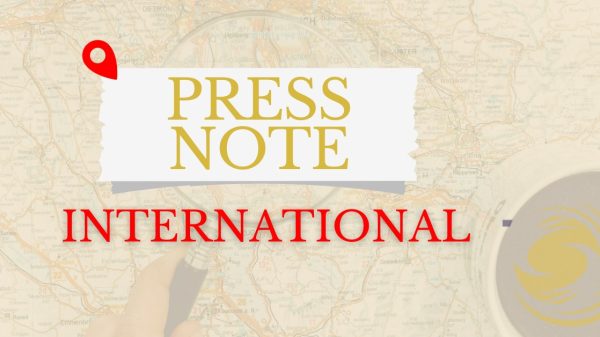Regional Air Travel Disruptions Following Military Strikes

Israel and Iran Agree to Ceasefire Amidst Ongoing Conflict
Financial Times,
US President Donald Trump announced on his Truth Social platform that Israel and Iran have agreed to a “Complete and Total CEASEFIRE” to end the 12-day war. According to Trump, the ceasefire would commence within six hours as both nations completed their final missions, with Iran initiating the truce, followed by Israel 12 hours later, leading to an official end of hostilities within 24 hours. Trump praised both countries for their courage and intelligence in ending a conflict that could have lasted years and destabilized the Middle East. However, there was no immediate confirmation or response from either Israel or Iran. The ceasefire announcement followed Israeli defense claims that all military objectives had been met, including significant damage to Iran’s nuclear and ballistic missile capabilities. Despite the truce, Israel’s defense minister warned of “forceful” retaliation against any ceasefire violations, with recent missile attacks from Iran intercepted without casualties.
Oil Prices Fall Sharply on Ceasefire Announcement and Market Reactions
BBC News,
Global oil prices dropped significantly after news of the ceasefire between Israel and Iran. Brent crude fell to around $68 per barrel, retreating from a recent high of $81 amid fears that Middle East tensions would disrupt energy supplies. The conflict had previously caused oil prices to spike due to concerns over Iran potentially blocking the Strait of Hormuz, a vital shipping route. Market analysts cautioned that adherence to the ceasefire terms by both countries would be critical in stabilizing oil prices. Stock markets in Europe, Asia, and the UK reacted positively to the ceasefire news, with indices like the Stoxx Europe 600 and Japan’s Nikkei rising, while energy stocks saw some declines reflecting falling oil prices. The drop in oil prices has been welcomed by consumers but raised concerns about the wider economic impact of the recent price surges.
Iran’s Response and Ambiguity Surrounding Ceasefire Commitment
Financial Times,
Iran’s state television declared that a ceasefire had been “imposed” following missile strikes by the Revolutionary Guards, describing the military actions as a response to US aggression. However, Iran’s foreign minister, Abbas Araghchi, later stated on social media that no formal ceasefire agreement had been reached and that Tehran reserved the right to continue its military response unless Israel ceased hostilities by 4 a.m. Tehran time. Araghchi acknowledged ongoing military operations up to the “very last minute,” suggesting the situation remained fluid. The Iranian government expressed readiness to defend itself vigorously but hinted at a possible cessation depending on Israel’s actions. This ambiguity contrasted with the US and Israel’s statements and underscored uncertainties regarding the conflict’s immediate future.
Regional Air Travel Disruptions Following Military Strikes
Reuters,
The escalating conflict triggered significant air travel disruptions across the Middle East. Dubai International Airport, the world’s busiest hub, briefly suspended operations overnight before resuming full service. Several Gulf states temporarily closed their airspace following Iranian missile strikes on a US military base in Qatar. Major airlines, including India’s Air India and Japan Airlines, canceled or rerouted flights to and from affected regions. Air India suspended all flights to the Middle East and redirected transatlantic and European-bound flights to avoid restricted airspaces. Pakistan’s airspace remains closed to Indian aircraft due to unrelated diplomatic tensions, further complicating regional air traffic. These disruptions have affected thousands of passengers and highlight the broader impact of the conflict on global connectivity.
Casualties Reported in Southern Israel Amid Iranian Missile Attacks
Financial Times,
Israeli paramedics confirmed three fatalities following Iranian missile strikes on the southern city of Be’er Sheba. The attacks occurred as Iran launched multiple volleys of missiles in rapid succession. The victims included a woman and two men aged around 20 to 40 years old. Israeli authorities intercepted several incoming missiles, limiting casualties. The strikes occurred amid heightened military alertness and shortly after Israel declared that it had fulfilled all objectives in its campaign against Iran. The incident underscored the ongoing risk to civilian populations despite talks of a ceasefire.
Political Turmoil in Thailand Amid Cabinet Reshuffle and Border Dispute with Cambodia
The Straits Times,
Thai Prime Minister Paetongtarn Shinawatra initiated a Cabinet reshuffle on June 23 to stabilize her fragile government, which faces a political and judicial crisis after a leaked phone call scandal and the withdrawal of the Bhumjaithai party from the coalition. The reshuffle addresses key ministries, including Defence, amidst ongoing tensions with Cambodia over a contested border area. Relations between the two countries have deteriorated following military skirmishes and economic measures such as Cambodia’s suspension of Thai fuel imports and tightened border controls. The Shinawatra government’s stability remains precarious as the Constitutional Court weighs a petition that could disqualify the Prime Minister. The border dispute and internal political pressures highlight Thailand’s continuing governance challenges.
China and India Agree to Enhance Bilateral Relations Amid Pilgrimage Resumption to Tibet
South China Morning Post,
In a sign of easing tensions, China and India agreed to continue improving diplomatic ties during recent high-level talks. China has permitted Indian pilgrims to resume travel to sacred sites in Tibet—Mount Kailash and Lake Mansarovar—after a five-year suspension linked to COVID-19 and border tensions. The pilgrimage routes through Lipulekh Pass and Nathu La Pass are historically significant for followers of Hinduism, Buddhism, Jainism, and Bon. India’s Ministry of External Affairs reported 5,561 applications for the pilgrimage this summer, with 750 permits issued. Observers noted that religious pilgrimages have historically contributed to stabilizing China-India relations during crises, signaling a potential thaw in bilateral ties.












